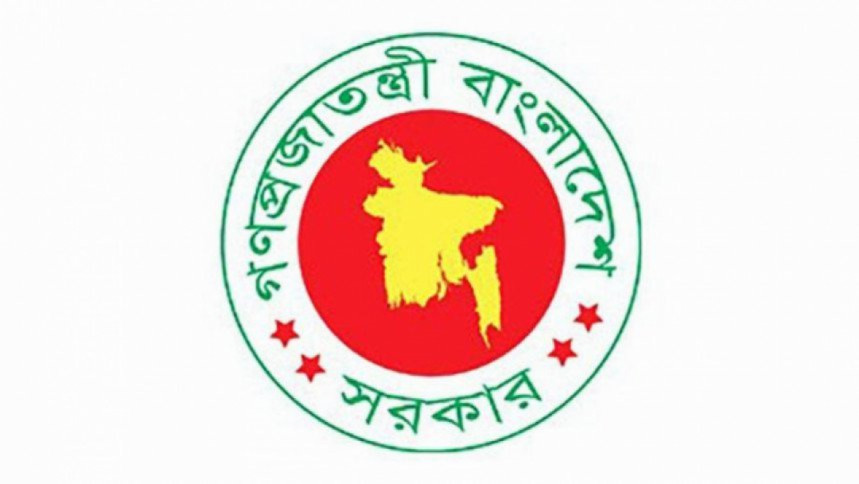Dubai properties owned by 459 Bangladeshis: Govt agencies fail to launch investigation

Despite the High Court order on January 15 to probe the purchase of Dubai real estate by 459 Bangladeshi nationals, the investigating agencies are yet to take any action.
The property purchase in the Gulf state -- with presumably laundered money -- came to the fore after the Centre for Advanced Defence Studies (C4ADS), a Washington DC-based non-profit organisation, published a working paper in May last year.
A total of 459 Bangladeshis purchased 972 properties in Dubai worth $315 million without disclosing information.
Of the properties, 64 are located in Dubai Marina and 19 in Palm Jumeirah, both premium locations. There are 100 villas and less than five buildings whose owners were identified to be Bangladeshi nationals.
Four to five Bangladeshis own properties worth about $44 million.
Researchers however did not disclose any individual's identity.
After the report was published in a Bengali daily, the HC on January 15 ordered the Anti-Corruption Commission (ACC), Bangladesh Financial Intelligence Unit (BFIU), National Board of Revenue (NBR) and Criminal Investigation Department (CID) to initiate a probe on the matter and give a report within one month.
The agencies are yet to start the probe as no written order has arrived. However, there are instances when the investigation agencies launched probes based on media reports and without an HC order.
In 2020 and 2021, ACC went through 2,167 media reports as its primary source of information and picked some for investigations.
Similarly, the other agencies also conducted probes on graft allegations based on media reports, documents show.
But in this case, they remain uninterested.
Humayun Kabir, senior superintendent of Police of CID, said they are yet to get any copy of the HC's order on 459 Bangladeshis' properties in Dubai.
"Once we get the order, we will begin our work," he said.
An official of the BFIU echoed the same.
Khairul Islam, director general of the NBR's Central Intelligence Cell, said he took charge only a few days back and could not say anything immediately.
"I have seen the report in the media," said Jahurul Haque, ACC's commissioner, while referring the correspondent to the agency's secretary.
Contacted, Mahbub Hossain, ACC's secretary, said: "As per the decision of the commission, next measures will be taken."
"This is a weak reason and disappointing -- and more so if the foot-dragging is explained on the ground of non-receipt of a written court order," said Iftekharuzzaman, executive director of Transparency International Bangladesh.
The agencies are being asked to do something that they should have done proactively, regardless of the court's intervention, he said.
The inaction raises several concerns.
"Is it a matter of lack of relevant professional expertise? Or is it too much of a task compared to their collective organisational capacity? Is it a matter of lack of coordination between themselves? Or is it because of the easily understandable reality that the people involved in such crimes of money laundering are powerful by any standard including financial, political and governmental connections -- direct or indirect?"
The inaction despite the HC intervention given the credible exposure of illicit financial transfer and accumulation of wealth, which is a severely punishable offence by national and international laws, sends a message that the perpetrators of such crimes are eligible for impunity, he said.
If such institutions are influenced by an individual's identity and status it will only deepen and widen corruption in general and money laundering in particular, Iftekharuzzaman added.
In the last couple of years, the HC on several occasions expressed its discontent over the investigation agencies' inaction.
While hearing a writ petition on the issue on March 6 last year, an HC bench said: "It is unfortunate if it [the ACC] fails to stop money laundering. Please, comply with our directives to prevent money laundering. The people of Bangladesh are brilliant and hard-working. If corruption can be eradicated, the golden Bangla that Bangabandhu dreamt of can be established."
During the new year session of the parliament, two Jatiya Party lawmakers came down heavily on the government for its failure to stop money laundering.
JP MP Fakhrul Imam said he "feels helpless when the head of a strong government like Sheikh Hasina does nothing to stop money laundering" even though billions of taka have already left the country.
Another JP MP Kazi Firoz Rashid complained that there is no exemplary punishment for irregularities in the financial sector.
"We have heard that someone left the country with Tk 158 crore. On the other hand, for a small loan, farmers were arrested. The government should think about this," he said.
The financial sector and real estate were the major beneficiaries of the laundered money, according to the C4ADS report.
Of the Bangladeshis who own properties in Dubai, 332 are men.
Of the Bangladeshi real estate owners in Dubai, 318 are aged between 35 years and 59 years, 42 are less than 34 years and 97 are more than 60 years.


 For all latest news, follow The Daily Star's Google News channel.
For all latest news, follow The Daily Star's Google News channel. 



Comments